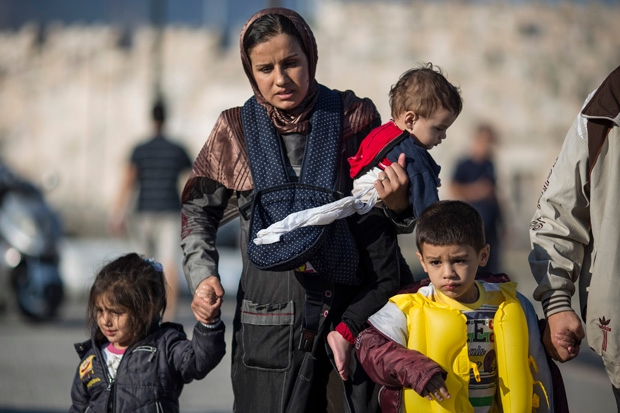[audioplayer src=”http://rss.acast.com/viewfrom22/jeremycorbynsbritain/media.mp3″ title=”Matthew Parris and Theo Hobson debate the role Christianity in the migrant crisis” startat=1383]
Listen
[/audioplayer]Proximity shouldn’t make a difference — should it? We were on a beach on the European side of the Mediterranean, it was a beautiful late August day, and I felt so happy. The sea was fresh, the sky was clear and a stiff breeze was whipping white horses out past the headland.
‘Rough weather for migrants,’ I thought, then checked myself. What an awful thing to think. There really would be migrants out there somewhere over the horizon; desperate people; people who, had they been visible to me — were they, Heaven forbid, to start coming ashore — would have turned my perfect day into a day of torment.
But I couldn’t see them, and my perfect day continued unspoiled but for the slightest tickle of disquiet. Do I not have a right be happy, though others are drowning and I might be able to help them? Surely I do. They aren’t drowning here. I cannot see them.
Yet this cannot be so. Can my inability actually to see any desperate migrants throw some internal switch from Personal Moral Crisis to All’s Well? Or, to put it more analytically, how does an individual’s moral responsibility vary according to distance: distance not just geographically but in terms of social, family or national obligation?
We know that the answer lies somewhere between ‘completely’ and ‘not at all’ but cannot be located at either of those two extremes. You can rule out ‘no variation at all’ because it is simply impossible that you or I could feel toward every migrant on the shores or waves of the Mediterranean the same obligation we hold towards members of our close family.









Comments
Join the debate for just £1 a month
Be part of the conversation with other Spectator readers by getting your first three months for £3.
UNLOCK ACCESS Just £1 a monthAlready a subscriber? Log in